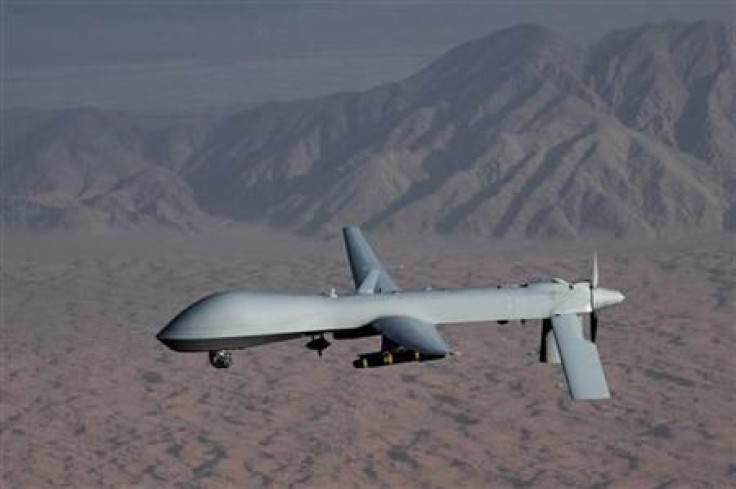Ron Paul: US May Target Edward Snowden With A Drone

While legal experts discuss the potential extradition of Edward Snowden to the United States, where he would be prosecuted for leaking classified information, former Rep. Ron Paul, R-Texas, suggested Tuesday that the administration might be considering a second option. “I’m worried somebody in our government might kill him with a cruise missile or a drone missile,” Paul said.
Paul is known to have entertained some paranoid ideas about government power, and the question of whom the U.S. can target with drones, including its own citizens, has been hotly debated in recent months -- including via a popular filibuster by Paul's son, Sen. Rand Paul, R-Ky., over the use of drones against Americans. But Snowden doesn't fit the bill.
“Absurd,” Peter Singer, a foreign policy expert at the Brookings Institution, said in an email Wednesday. “We are not carrying out a drone strike into China.” Snowden is currently in Hong Kong, an autonomous but Chinese-ruled territory.
Does that leave open the possibility that Snowden could be targeted elsewhere, such as in a country where U.S. drone attacks have taken place? Not according to Benjamin Wittes, a legal expert on terrorism issues at Brookings, who said Snowden cannot be targeted because he doesn’t fall under the jurisdiction granted by Congress to kill terrorists.
“He could not be targeted with drones, because he is not associated in any way with any group covered by the 2001 Authorization for the Use of Military Force [AUMF],” Wittes wrote in an email. Snowden, who until this week was a contractor working at the National Security Agency, is not connected with any group the president is allowed to target under AUMF, the joint resolution by which Congress authorized him to use lethal force against groups and individuals connected to the Sept. 11, 2001, terrorist attacks.
In addition, Snowden does not pose the kind of violent threat that would permit the U.S. to target him with a drone. “Nor does he pose the sort of imminent threat of military attack that would implicate the president's authority to act militarily in the interests of the country's self-defense,” Wittes wrote.
The Obama administration has recently set out to clarify and even rein in the use of drones, though the specifics of doing so remain classified. After denying for years that the U.S. government had targeted American citizens abroad, the administration formally acknowledged last month that it had killed four Americans in drone strikes and justified those killings. In a major foreign policy speech at the National Defense University, along with the release of guidelines on the administration’s use of drones, the president has sought to clarify, at least to a degree, when the government can target Americans. Snowden’s case clearly falls outside the bounds of these guidelines.
In order to target a U.S. citizen, he or she must be “a senior operational leader of al Qa'ida or its associated forces, and who is actively engaged in planning to kill Americans,” Attorney General Eric Holder clarified in a letter to Congress on the eve of Obama’s speech. Further, the letter said, the target must “pose an imminent threat of violent attack against the United States” and be in a situation where “capture is not feasible.”
Snowden, who is presumed to be hiding in Hong Kong, is neither a terrorist plotting an attack nor in a situation where bringing him into custody is not feasible – though he could seek asylum in other countries.
While Snowden is not a terrorist, members of Congress and some in the media have labeled him a “traitor” and called the leaks “treason." But legally, Snowden is unlikely to be found guilty even of committing treason.
“They are surely wrong” to call Snowden a traitor in that legal sense, Wittes wrote. “Treason is defined in the Constitution in a fashion that I don't think the facts here would remotely support.”
“Legally, that would definitely be overcharging him,” said Jesselyn Radack, director of national security and human rights at the Government Accountability Project, noting that there have been “Americans fighting on the battlefield against us, and we never charged them with treason.”
© Copyright IBTimes 2024. All rights reserved.












